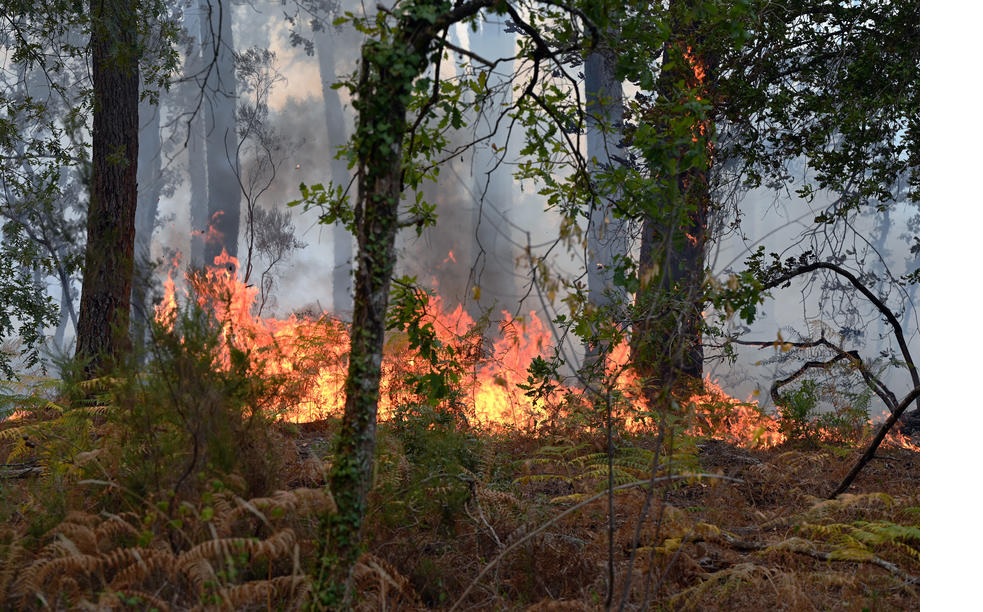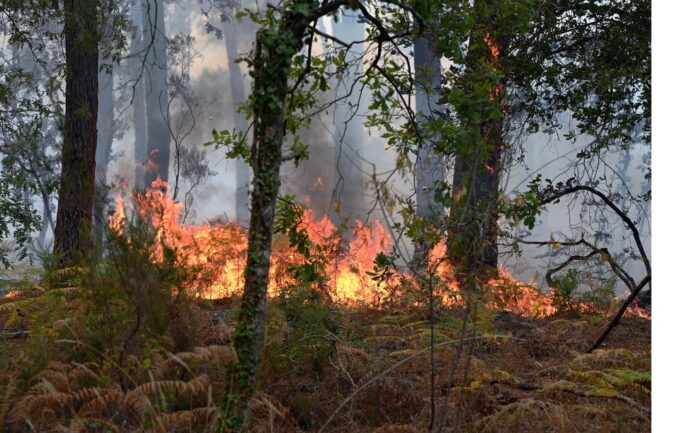Unleashing Havoc: Environmental crisis Unprecedented Canada Wildfires Devour over 10 Million Hectares in 2022!

Introduction
The year 2022 proved to be a catastrophic one for Canada, as the nation faced an unparalleled wildfire crisis that left a trail of destruction in its wake. With massive flames ravenously devouring over 10 million hectares of land, the severity of this devastation has left communities reeling and environmentalists deeply concerned. In this article, we delve into the far-reaching impacts of these wildfires, exploring the factors behind their intensity and highlighting the strategies employed to combat this menacing inferno.
The Burning Beast: Understanding the Scope of the Wildfires
As the ashes settle, the sheer magnitude of the 2022 wildfires becomes evident. With over 10 million hectares of land reduced to charred remains, this unprecedented destruction surpasses all previous wildfire seasons in Canada. Compare this staggering figure to the average annual hectares consumed in recent years, and the severity of the crisis becomes crystal clear.
Consequently, the environmental consequences of such a colossal Canada wildfire outbreak cannot be overstated. The release of greenhouse gases from the combustion of vast forests contributes to the acceleration of climate change, exacerbating its adverse effects. Additionally, the destruction of wildlife habitats leads to the displacement and loss of countless species, threatening the delicate balance of ecosystems that these creatures call home.
Fueling the Flames: Factors Contributing to the Intensity
No wildfire reaches such devastating proportions without the simultaneous occurrence of specific contributing factors. In the case of Canada’s 2022 wildfires, extreme weather conditions played a pivotal role in fueling the flames. Unrelenting heatwaves and long-lasting droughts transformed the vegetation into highly combustible tinder, allowing the fires to spread rapidly and uncontrollably.
This occurrence is not isolated but rather connected to the increasingly evident impact of climate change. Rising global temperatures and changing weather patterns have led to a higher incidence of extreme weather events, such as heatwaves and prolonged droughts. Consequently, these conditions create favorable environments for wildfires to thrive, leading to their increased frequency and heightened intensity.
Despite advancements in technology and fire prevention methodologies, the sheer ferocity of the wildfires overwhelmed these measures. Even the most promising technological interventions were unable to suppress or prevent the spread of these uncontrollable infernos, illustrating the urgency to address the underlying causes of such catastrophes.
Human Encounters: Impacts on Communities and Lives
While the vast hectares consumed by the Canada wildfires provide a stark visualization of the devastation, the impact on communities and individuals is far more profound. Countless families faced the heartbreak of losing their homes and belongings in the fires’ path of destruction. The tangible losses inflicted upon these communities range from property damage to complete displacement, leaving them to rebuild their lives from scratch.
Beyond the tangible losses, the emotional toll on those who witnessed the devastation firsthand cannot be overlooked. Lives upended, dreams shattered, and a profound sense of insecurity now plague the survivors. The trauma experienced by individuals and families will require significant support systems to aid in their recovery.
Government agencies, volunteers, and non-governmental organizations (NGOs) have swiftly mobilized to provide assistance and support to the affected communities. From emergency shelters to food distribution, these collective efforts aim to alleviate the immediate needs of those affected by the fires. Additionally, mental health support services have been vital in helping individuals navigate the emotional aftermath of this harrowing experience.
Fighting Back with Canada wildfires: Strategies for Combating the Fury of Flames Menace
The battle against the wildfire menace demands a multifold approach combining prevention, preparedness, and rapid response. Improved fire management techniques and well-coordinated deployment of resources can effectively combat wildfires. Investing in fire-resistant infrastructure, such as constructing buildings with materials resistant to fire, can mitigate the risk of property damage and enhance overall community safety.
Moreover, early detection systems and increased surveillance play a crucial role in curbing the spread of wildfires. Advanced technologies, such as satellite imagery and drones, enable authorities to identify potential hotspot areas swiftly and respond promptly. Collaborative efforts between organizations and countries in developing and sharing these technologies can significantly strengthen wildfire prevention and containment strategies.
However, prevention alone is not sufficient; public awareness campaigns and education regarding fire safety measures and prevention are paramount. Properly informing individuals about fire safety, such as the responsible use of fire and proactive steps to mitigate risks, can drastically reduce the incidence and severity of wildfires. Equipping communities with the knowledge and tools to prevent, prepare, and respond to wildfires is instrumental in safeguarding lives and minimizing environmental devastation.
Conclusion
The unprecedented wildfires that tormented Canada wildfires in 2022 unearthed the fragility of our ecosystems and the vulnerability of human lives in the face of nature’s ferocity. As the scars heal and communities rebuild, it is imperative that we not only learn from this calamity but also take bold action to prevent future catastrophes. By understanding the scope of the wildfires, addressing the contributing factors, and implementing comprehensive strategies for prevention and response, we can strive towards a future where the devastating impact of wildfires is significantly reduced, if not eradicated altogether.
Analysis-China Keeps up Campaign to Pressure Critics Abroad Despite Western Backlash





